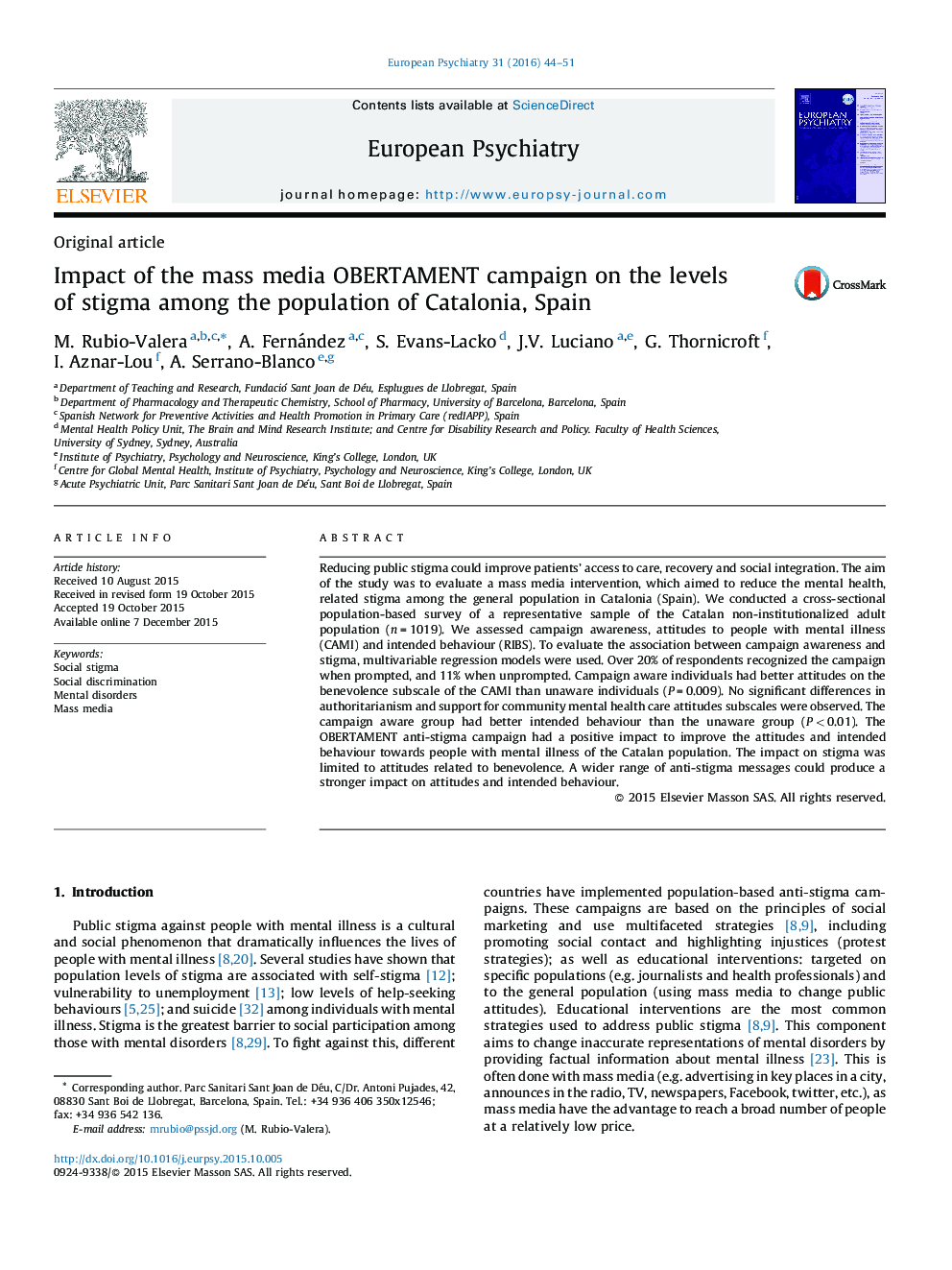| Article ID | Journal | Published Year | Pages | File Type |
|---|---|---|---|---|
| 4183445 | European Psychiatry | 2016 | 8 Pages |
Reducing public stigma could improve patients’ access to care, recovery and social integration. The aim of the study was to evaluate a mass media intervention, which aimed to reduce the mental health, related stigma among the general population in Catalonia (Spain). We conducted a cross-sectional population-based survey of a representative sample of the Catalan non-institutionalized adult population (n = 1019). We assessed campaign awareness, attitudes to people with mental illness (CAMI) and intended behaviour (RIBS). To evaluate the association between campaign awareness and stigma, multivariable regression models were used. Over 20% of respondents recognized the campaign when prompted, and 11% when unprompted. Campaign aware individuals had better attitudes on the benevolence subscale of the CAMI than unaware individuals (P = 0.009). No significant differences in authoritarianism and support for community mental health care attitudes subscales were observed. The campaign aware group had better intended behaviour than the unaware group (P < 0.01). The OBERTAMENT anti-stigma campaign had a positive impact to improve the attitudes and intended behaviour towards people with mental illness of the Catalan population. The impact on stigma was limited to attitudes related to benevolence. A wider range of anti-stigma messages could produce a stronger impact on attitudes and intended behaviour.
